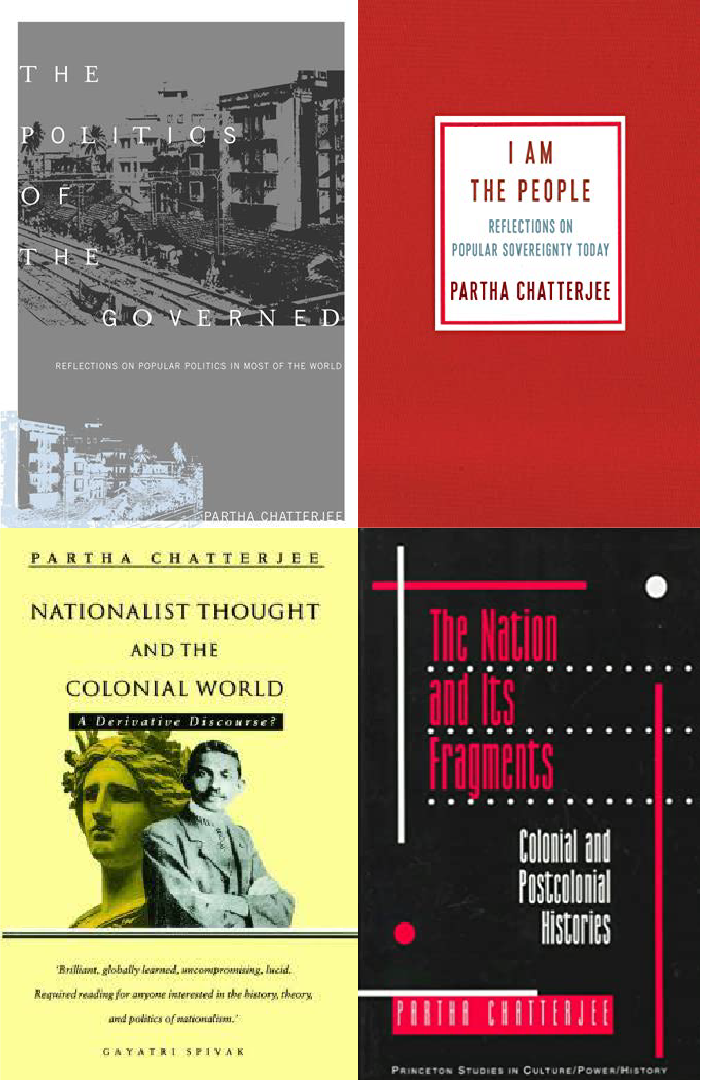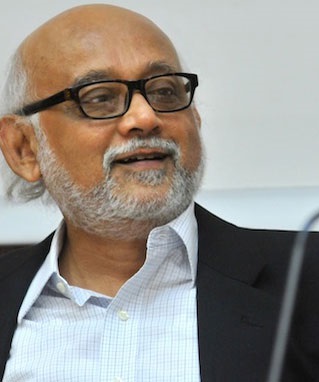Genealogies of Populism
Reflections on Popular Sovereignty Today
What is populism? Is it an ideology, a style, a strategy, a political logic, a form of governance, or all of the above? What explains the sudden reinvigoration of claims to speak for ‘the people’ in the contemporary moment, across ideologically diverse political projects? What is the relationship between the rise of populism and the parallel processes of neoliberalization that have taken place across the globe?
In this conversation with Dr. Partha Chatterjee we will consider the (re)emergence of populism in today’s world in relation to the twentieth-century trajectory of liberalism and neoliberal reforms. Drawing on his extensive research on nationalism, post-coloniality, popular sovereignty and neoliberal governmentality in and beyond India, we will speak with Dr. Chatterjee about the effects of neoliberalization in the development of contemporary democracies. The discussion will include reflection on the spaces, arrangements, and practices from which we might draw hope for the formation of alternatives to the current crossroad.
Curators: Luciana Chamorro Elizondo (Postdoctoral Fellow) and Ragini Tharoor Srinivasan (English)
Lecture (open to the public): Thursday, November 12, 2020, 6-7:30pm (MST)
Seminar: Friday, November 13, 2020, 11am-12:30pm (MST)


Partha Chatterjee is a political theorist and historian. He studied at Presidency College in Calcutta, and received his PhD from the University of Rochester. He divides his time between Columbia University and the Centre for Studies in Social Sciences, Calcutta, where he was the director from 1997 to 2007. He is the author of more than twenty books, monographs and edited volumes and is a founding member of the Subaltern Studies Collective. He as awarded the Fukuoka Asian Culture Prize for 2009 for outstanding achievements in the field of Asian studies.
His books include: The Politics of the Governed: Considerations on Political Society in Most of the World (2004), A Princely Impostor? The Strange and Universal History of the Kumar of Bhawal (2002), A Possible India: Essays in Political Criticism (1997), The Nation and Its Fragments: Colonial and Postcolonial Histories (1993), and Nationalist Thought and the Colonial World: A Derivative Discourse? (1993). His recent work on global practices of empire since the eighteenth century has resulted in the book The Black Hole of Empire (2012). Chatterjee delivered the Ruth Benedict lectures in the Department of Anthropology in April 2018. The expanded version of these lectures were published by Columbia University Press in 2019 as a book entitled "I am the People": Reflections on Popular Sovereignty. A larger book entitled Government by the People: Critique of the Nation Form is nearing completion. His next project will be a people's history of Bengal (including Bangladesh and West Bengal) in the twentieth century.
He is also a poet, playwright, and actor. In the Mira Nair film The Namesake (2007), he played the role of “A Reformed Hindoo.”
Seminar Readings
(The linked PDFs are password-protected.)
Partha Chatterjee, from I Am the People: Reflections on Popular Sovereignty Today (2019), Preface and Chapter 3
Chatterjee, Partha- I am the People_Preface and Ch 3.pdf
Ernesto Laclau, "Populism: What's in a Name?" (2005)
Laclau, Ernesto- Populism_What's in a name.pdf
Wendy Brown, "Neoliberalism's Frankenstein: Authoritarian Freedom in Twenty-First Century 'Democracies'" (2018)
Brown, Wendy- Neoliberalism's Frankenstein.pdf
Sören Brandes, "The Market's People: Milton Friedman and the Making of Neoliberal Populism" (2019)
